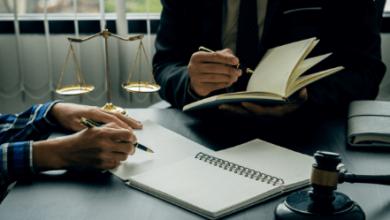Polygraph Tests in Nevada: Complete Guide to Lie Detector Testing

Polygraph tests, often called lie detector tests, have fascinated people for decades. They are seen by some as valuable tools for uncovering the truth and by others as controversial devices prone to error. In Nevada, polygraph examinations are used in multiple settings, from police investigations to employment screening and even private disputes. Yet questions about their reliability, legality, and fairness continue to spark debate.
For anyone in Nevada asked to take a polygraph test, understanding how it works, when it can be used, and what to expect is crucial. This article provides a detailed and informative guide to polygraph tests in Nevada, covering everything from their scientific basis to their role in the legal system.
What Is a Polygraph Test?
A polygraph test, more commonly known as a lie detector test, is a procedure that measures physiological changes in the body as someone answers questions. The idea is that lying causes stress, which can manifest in physical reactions.
Standard polygraph machines measure three main indicators:
- Heart rate and blood pressure – Deceptive responses can cause cardiovascular changes.
- Respiratory activity – Breathing patterns may shift when a person feels anxious.
- Skin conductivity – Also called galvanic skin response, this measures changes in sweating.
These reactions are recorded on charts, and the examiner interprets the data to determine whether the responses suggest truthfulness or deception. While this may sound straightforward, human emotions and physiology are complex, which is why polygraph results are controversial.
Polygraph Tests in Nevada: Common Uses
Polygraph testing in Nevada is not limited to police work. It has applications across law enforcement, employment, and even personal matters. Below are the primary areas where lie
- Employment Screening – Certain jobs in Nevada, particularly law enforcement, corrections, and high-security fields, require candidates to undergo polygraph testing. The goal is to evaluate honesty, past conduct, and integrity before hiring.
- Probation and Parole Monitoring – Some Nevada courts and probation offices require offenders, especially those in sensitive cases, to submit to periodic polygraph tests to ensure compliance with release conditions.
- Private Disputes – Polygraph tests are sometimes used voluntarily by individuals or businesses to resolve conflicts. While not legally binding, they may provide reassurance or help in negotiations.
See also: Lifewave Lawsuit Demands: A Global Perspective
Can Polygraph Results Be Used in Nevada Courts?
One of the most common questions people have is whether polygraph test results are admissible in Nevada courts. The short answer is: generally no.
Nevada, like most states, does not accept polygraph results as courtroom evidence due to concerns about reliability. Physiological reactions can be influenced by many factors beyond lying, including stress, fatigue, and medical conditions.
That said, there are limited exceptions. If both parties in a case agree to admit the results, a judge may allow them. In civil cases, family law disputes, or arbitration, polygraph evidence may sometimes be considered, but rarely as the sole deciding factor.
How Accurate Are Polygraph Tests?
Supporters argue that polygraphs are highly accurate when administered by trained examiners, with accuracy rates reported between 80–90%. They believe polygraphs can be valuable tools for detecting deception in high-stakes contexts.
Critics, however, point out that polygraphs do not directly measure lies—they measure stress. A truthful but nervous person may show “deceptive” responses, while a dishonest but calm individual may pass. Because of this, polygraphs are best viewed as investigative tools rather than definitive proof of honesty or dishonesty.
What to Expect During a Polygraph Test in Nevada
If you are asked to take a polygraph test in Nevada, understanding the process can ease anxiety. A typical polygraph exam has three stages:
- Pre-Test Interview – The examiner explains the procedure, reviews the questions, and establishes baseline physiological readings.
- Testing Phase – The subject is connected to the polygraph machine, and questions are asked while physiological responses are recorded. Both control questions and relevant questions are used.
- Post-Test Analysis – The examiner reviews the charts and interprets results. Sometimes, additional questions or clarifications are requested.
The process usually lasts 1.5 to 3 hours, depending on complexity.
Cost of Polygraph Tests in Nevada
Polygraph tests in Nevada vary in cost depending on the purpose and provider. Private lie detector tests generally cost between $200 and $600, though specialized exams may exceed $1,000.
For government-related testing, such as police hiring or probation monitoring, costs are often covered by the agency. For personal or private matters, individuals are usually responsible for the fee.
Advantages and Limitations of Polygraph Tests
Polygraph testing has both strengths and weaknesses, which explains its controversial status.
Advantages:
- Can help narrow suspects in criminal cases.
- Acts as a deterrent against dishonesty in sensitive jobs.
- Provides reassurance in private disputes or business matters.
Limitations:
- Results are not admissible in most Nevada courts.
- Physiological responses may not always indicate lying.
- Cannot replace evidence or thorough investigation.
Understanding these pros and cons is crucial for anyone considering or facing a polygraph in Nevada.
The Future of Polygraph Testing in Nevada
While traditional polygraph machines remain widely used, new technologies are emerging. Voice stress analysis, artificial intelligence, and brain imaging are being studied as potential alternatives or supplements to polygraph testing.
Nevada, known for embracing innovation, may eventually incorporate these technologies into law enforcement and employment practices. Still, the ethical debate about privacy and fairness will shape how and when they are adopted.
Nevada Location
- Las Vegas – 1980 Festival Plaza Drive, Las Vegas, NV 89135
- Las Vegas – 9205 West Russell Road, Las Vegas, NV 89148
- Las Vegas – 71 South Las Vegas Boulevard, Las Vegas, NV 89119
- Las Vegas – 2300 West Sahara Avenue, Las Vegas, NV 89102
- Las Vegas – 101 Convention Center Drive, Las Vegas, NV 89109
Conclusion
Polygraph tests in Nevada occupy a unique space in law, employment, and personal matters. While they are not perfect and are generally inadmissible in court, they continue to play a role in investigations, hiring, and dispute resolution.
For anyone undergoing a lie detector test in Nevada, preparation and understanding are key. Knowing how polygraphs work, what their limits are, and how the law treats them can help reduce stress and ensure informed decision-making.





